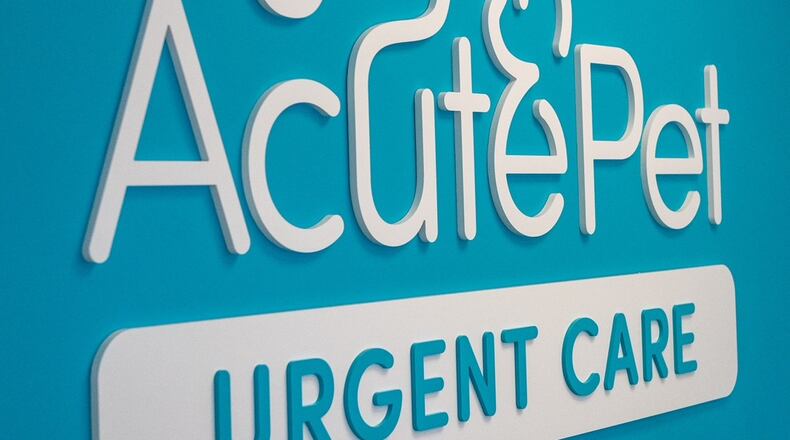Hoffman started the Dayton Care Center and Cincinnati Care Center veterinary practices, and Sachs was a longtime owner and operator of a veterinary hospital in South Carolina. Both sold their practices in 2016 and spent the subsequent few years studying how to address industry issues.
Over the course of their careers, Hoffman and Sachs began to notice an emerging gap between primary vet providers and emergency hospitals, both of which are already swamped, Hoffman said. That gap included any non-life-threatening ailments too serious for a primary care vet to deal with and which often require owners to wait long hours in the emergency room.
“We look at ourselves as really not competing with anyone,” Hoffman said. “We’re really a pop-off valve for the family vet ... and we’re a pop-off for the emergency rooms who have life-threatening, critical cases, but they maybe have all these other ones that are waiting, that when they’re triaged they’re not considered critical. We can help take some of that pressure off.”
The urgent care model is beginning to pick up steam in the veterinary community, Hoffman said.
“What we really saw, on the emergency side especially, with our background, there’s just a lot of burnout in the veterinary community, from both the veterinarians and the technicians,” Hoffman said.
Veterinary technician pay is oftentimes low, Hoffman said, and many technicians will leave the profession for human medicine and better pay and career prospects. Emergency veterinarians often experience a high volume of compassion fatigue and may step back from emergency care or from veterinary medicine entirely.
Veterinary medicine has one of the highest rates of suicide among medical professionals. In 2019, the Centers for Disease Control and Prevention found that veterinarians are between two and four times more likely to commit suicide compared to the general population.
It’s a statistic Hoffman knows well, as he has been involved in practices where technicians have tried to commit suicide.
“It’s always such a tragedy to what brings them to this this stage,” he said. “And it’s obviously not just veterinary medicine, there’s other things in their lives ... but what’s the tipping point? What we want to do is try to never be that tipping point.”
Taking care of people isn’t just pay, Hoffman said, it’s also about benefits, managing schedules properly, ensuring employees have time with their families, even down to the environment and software they use every day.
“There’s an opportunity here to really kind of make veterinary medicine fun again,” he said. “I think there’s been too much focus on the bottom line. And our belief has always been: if you take good care of your people, they’ll take good care of their pets. The financial stuff takes care of itself.”
A second AcutePet is planned to open in West Chester Twp. this summer, as is one location in Mount Pleasant, South Carolina.
AcutePet Beavercreek’s hours are 10 a.m. to 10 p.m. Saturday, Sunday and Monday, and 12 p.m. to midnight Tuesday, Wednesday, Thursday and Friday.
About the Author

